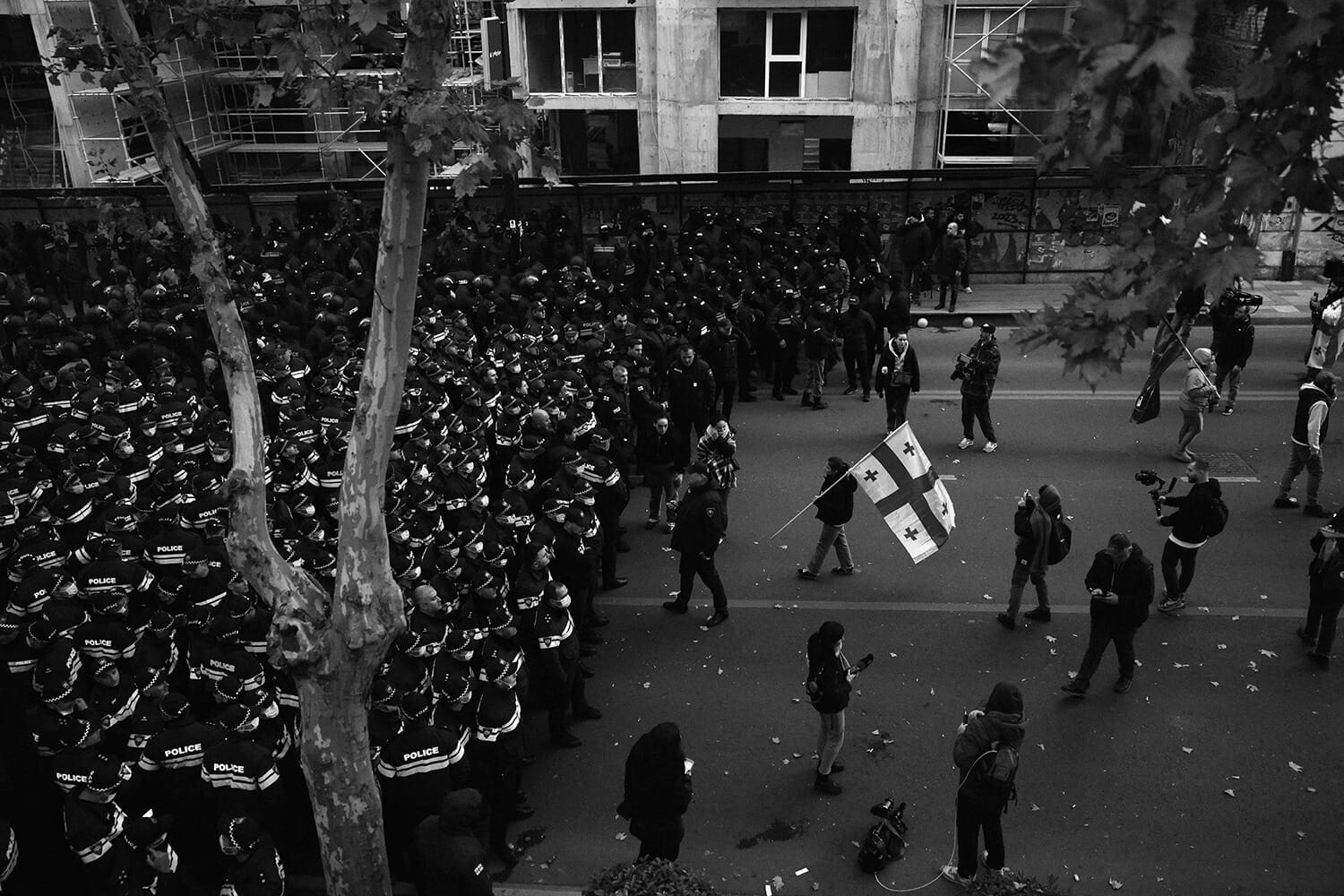Georgia has many supporters abroad. We are among them as scholars and students of Georgian history, culture, and politics, working in universities and colleges around the world. We are Georgia’s friends and allies and have followed Georgia’s uneven but incremental progress toward democracy since independence in April 1991. We all welcomed the significant advance toward membership of the European Union in November of last year, when the European Commission granted candidate status to Georgia. The entry of Georgia into the European Union reflects the wishes of the majority of Georgia’s citizens. It is a step toward the consolidation of civil and political rights in your country and promises greater security and economic progress for Georgia.
We have been alarmed by legislation passed in 2024, such as the law “On the Transparency of Foreign Influence” and the law “On the Protection of Family Values and Minors,” which restrict the civil liberties of Georgia’s citizens and undermine their ability to freely exercise their rights. The Parliamentary Assembly of the Council of Europe (PACE) sent 500 international short-term observers to nearly 2,000 polling stations across Georgia during the October 26 parliamentary elections. On November 29, it released its report which expressed serious concerns as to whether the elections “truly reflect the will of the voters.” Prime Minister Irakli Kobakhidze’s announcement on November 28, 2024, on the suspension of negotiations for Georgia’s candidacy in the European Union, deepened the chasm between the government and you, its citizens. The unprecedented mass resistance to government policies among Georgian citizens in the country’s cities and towns has led to violent repression, including the systematic beating of journalists. On December 4, we witnessed the arrests of Georgian opposition leaders and civil society activists. This represents the government’s abandonment of democracy. It is a very dark day in Georgian history.
To prevent the possibility of further human tragedy, we urge the government to immediately withdraw the special security forces who have systematically violated Georgian citizens’ civil rights. Georgia’s political prisoners – as indeed they now are – must immediately be released and the rule of law restored. We appeal for a dialogue between government and opposition representatives and the restoration of peace and security on Georgia’s streets. This is the first step toward the restoration of Georgia’s European path and to the creation of a government that is both legitimate and democratic. This requires the rescinding of the law “On the Transparency of Foreign Influence” and the law “On the Protection of Family Values and Minors,” and the end to the usurpation of citizens’ rights to protest and organize.
We are in solidarity with you – Georgian citizens – who at great risk are exercising your right to protect Georgia’s democracy and the population’s long-standing aspiration to be part of the European community of nations.
December 4, 2024
Signatories:
- Professor Stephen Jones, founder of the Program on Georgian Studies, Davis Center, Harvard University. Professor of Modern History, Ilia State University
- Professor Florian Mühlfried, Ilia State University, Georgia
- Professor John Colarusso, McMaster University, Canada
- Michael Bernhard, Raymond and Miriam Ehrlich Chair, University of Florida, United States
- Dr. Claire Kaiser, Adjunct Professor, Georgetown University, United States
- Sebastian Elischer, Associate Professor of Political Science, University of Florida, United States
- Dr. Anna Ohanyan, Richard B. Finnegan Distinguished Professor of International Relations, Stonehill College, Massachusetts, USA
- Dr. Jo Laycock, Senior Lecturer in Migration History, University of Manchester, UK.
- Peter Skinner, historian
- Julie A. George, Associate Professor of Political Science, City University of New York.
- Vicken Cheterian, lecturer, University of Geneva.
- Dr. Leila Alieva, Associate, REES, OSGA, University of Oxford
- Professor Erik Scott, University of Kansas, United States
- Martin Demant Frederiksen, Associate Professor in Anthropology, Department of Culture and Society, University of Aarhus, Denmark
- Michael Dobbins, Adjunct Professor of Policy Analysis, University of Konstanz
- Gorkem Aydemir-Kundakci, FWO Postdoctoral Fellow in Anthropology, KU Leuven, Belgium
- Paul Manning, Professor of Anthropology. Trent University, Canada.
- David S. Siroky, Professor of International Relations, University of Florida, USA
- Hubertus F. Jahn, Professor Emeritus of the History of Russia and the Caucasus, University of Cambridge; Fellow, Clare College, Cambridge; Chair, Friends of Academic Research in Georgia (FaRiG)
- Stephen B. Riegg, Associate Professor of History, Texas A&M University, USA
- Anne Meneley, Professor of Anthropology, Trent University, Canada
- Katrine Bendtsen Gotfredsen, Senior Lecturer in Caucasus Studies, Malmö University, Sweden
- Professor Sir Christopher Clark, Regius Professor of History, University of Cambridge, UK.
- Harsha Ram, Associate Professor, Slavic Languages and Literatures, University of California, Berkeley, USA
- Mikel Venhovens, Postdoctoral Researcher, Department of Anthropology, Aarhus University, Denmark.
- Dr Laurence Broers, Associate Fellow, Russia & Eurasia Programme, Chatham House
- Altay Goyushov, Invited Researcher, Sciences Po
- Dr. Sofie Bedford, IRES Institute for Russian and Eurasian Studies, Uppsala University
- Bruce Grant, Professor of Anthropology, New York University
- Annamaria Orla-Bukowska, Lecturer in Social Anthropology and the Holocaust, Jagiellonian University, Kraków, Poland
- Professor Silvia, Serrano Vice-chancellor, Sorbonne University Abu Dhabi
- Professor Susan H. Allen, Henry Hart Rice Professor of Conflict Analysis and Resolution, George Mason University, United States


